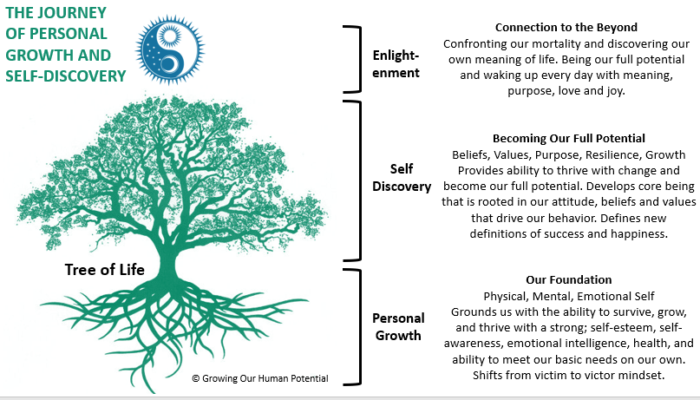
THE JOURNEY OF PERSONAL GROWTH, SELF-DISCOVERY & ENLIGHTENMENT
Having a Framework helps to provide both a structure and understanding of the growth process. The analogy of a tree is helpful to recognize the importance of building our own foundation first (e.g., self-esteem, self-awareness), just like a tree needs strong and healthy roots to support the growth of the tree throughout its life. This is followed by discovering who we are in terms of our beliefs, values, personality and more, and who we want to be. Then there are those who yearn to discover more about life, its meaning, and how we fit in. Below are a couple of podcasts to listen to the conversation followed by text below describing more detail about these stages.